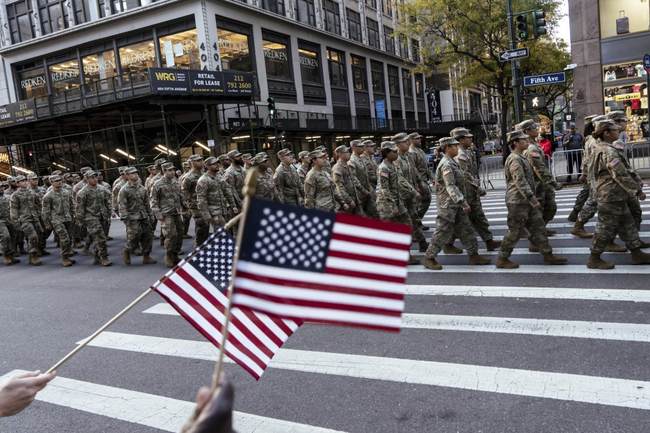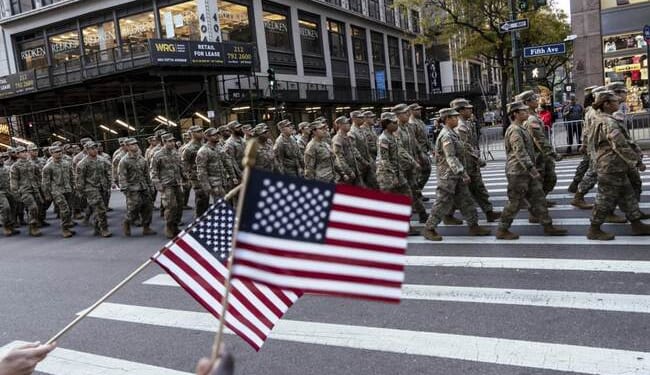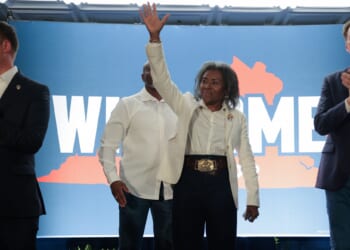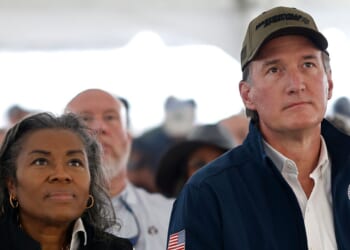
When the towers fell on 9/11, I signed into my unit. When the markets crashed on Sept. 15, 2008, I sat behind a desk in a suit. Both moments shook me. But only one revealed what it truly means for a soldier to come home.
In 2003, I led a platoon from the 3rd Infantry Division across the berm into Baghdad. Every order was clear. The mission was simple: win. The uniform reminded you who you were and what you did. In 2008, I reported to my first day at Lehman Brothers after finishing the associate training program — only to watch it collapse within a week. The company I joined to serve my country in a different way vanished overnight.
That juxtaposition defines veteran reintegration. It isn’t about transferring one kind of uniform to another job. It’s about trading one identity for another — and wondering whether the new one still matters.
Reintegration programs discuss jobs, housing, and benefits. Those matter. But the harder challenge is cultural: I left a world of shared mission and returned to one of individual metrics and shifting purpose. The authority is diffused, the purpose unclear, the leadership gone. On the battlefield, you know: the mission is survival, the goal is victory. On Wall Street, you know: the metrics are daily, the culture is transient, the purpose hazy.
When Lehman imploded, the silence that followed felt hauntingly familiar. In Iraq, plans unraveled, trust eroded, missions blurred. I’d fought to liberate a nation overseas. I had arrived home to experience the unraveling of one at home. The same feeling: everything you trained for losing meaning in a moment.
We ask veterans to “transition back” as though we know the destination. But the real work is integration — of who we became through war and who we are asked to be after it. Veterans bring hard-earned lessons: discipline under chaos, camaraderie over competition, and integrity under fire. These aren’t just military values — they’re civic ones.
Corporations and communities should not simply hire veterans — they should listen to them. Because when institutions falter — whether in Fallujah or a Wall Street office — it’s not technology or strategy that saves them. It’s trust, cohesion, and moral clarity: precisely what veterans know by necessity.
When I wrote Downriver, I wanted to document that passage — from combat, to corporate collapse, to something resembling peace. The book isn’t a war story; it’s a story about context, collapse, and the possibility of renewal. It won a Gold Medal Award from the Military Writers Society of America for its authenticity — a reminder that reintegration narratives resonate far beyond the veteran community.
This Veterans and Military Families Month, saying “thank you for your service” is not enough. Reintegration is not a favor we grant — it’s a resource we tap. It’s not just about helping veterans — it’s about learning from them. The traits forged in combat — purpose, cohesion, honor — are the very ones that modern institutions desperately need.
The battlefield and the trading floor may look nothing alike. But both ask: who do you trust when the mission fails? Who leads when the structure collapses? And who stands when everything moves on without you?
Let’s change the question. It’s not “How do we reintegrate veterans?” It’s “How do we integrate the values veterans already carry?” Because when America’s institutions wobble — whether overseas or at home — what restores them isn’t fear or profit. It’s purpose, trust, and someone willing to lead when nothing else works. Veterans know that. The question is whether we are ready to follow.
Editor’s Note: After more than 40 days of screwing Americans, a few Dems have finally caved. The Schumer Shutdown was never about principle—just inflicting pain for political points. Help us continue to report the truth about the Schumer Shutdown. Use promo code POTUS47 to get 74% off your VIP membership.










